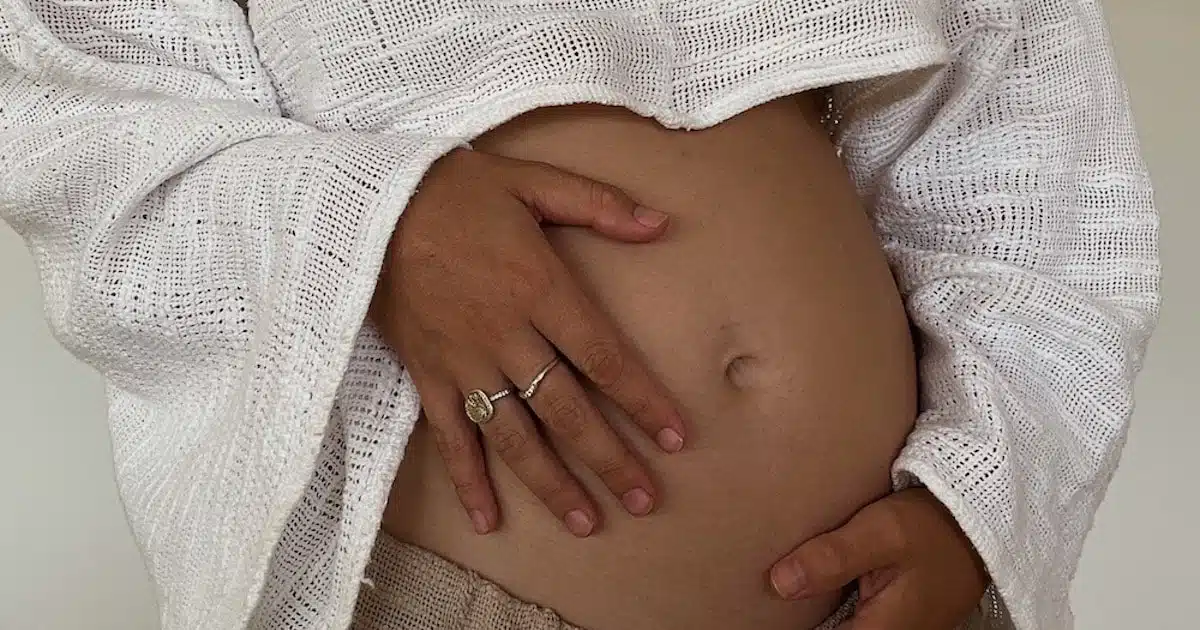Making sense of chemical pregnancy and early pregnancy loss
Nikki Stevenson
Nikki Stevenson
Up next
In this article
- What is a chemical pregnancy?
- Symptoms and signs of a chemical pregnancy
- Causes and risk factors of a chemical pregnancy
- Diagnosing chemical pregnancy
- Treatment and management of chemical pregnancy
- Prevention and future pregnancies
- Understanding fertility after a chemical pregnancy
- Emotional impact and support
- Planning for the future
- If you need help
- Sources
Trigger Warning: Early Pregnancy Loss
This article discusses early pregnancy loss, including miscarriage, which may be distressing for some readers. Reader discretion is advised.When you first see a positive result on a pregnancy test, the excitement is overwhelming.
You start imagining the future, your life with this new little person. But sometimes, that joy is unexpectedly cut short and the dreams are paused.
This sudden shift in reality is often due to a chemical pregnancy – a term that many might not know until they face it themselves. It’s a brief and early-stage pregnancy loss that can leave you feeling confused and heartbroken.
Let’s explore what chemical pregnancies involve and provide some understanding during what can be a very emotional time.
What is a chemical pregnancy?
Chemical pregnancy might sound like a clinical term detached from the emotional weight it actually carries.
In reality, a chemical pregnancy represents a very early pregnancy loss, often before many even realise they’re pregnant. This type of pregnancy is confirmed by a positive pregnancy test, which detects the hCG pregnancy hormone, but ends shortly thereafter, usually just around the time of an expected period.
The term “chemical” pregnancy refers to the biochemical detection of pregnancy, as most chemical pregnancies end so early that they are not detected by ultrasound. Still, it’s crucial to acknowledge that a chemical pregnancy is indeed a real pregnancy. It’s not merely a false alarm or a mistake on a test; it’s a brief moment of conception that stops developing for various reasons.
Sign up
Get tailored content based on your week of pregnancy
By signing up, you agree to receiving our Newsletters. Cancel anytime.



Symptoms and signs of a chemical pregnancy
Chemical pregnancies often manifest symptoms that can be easily mistaken for a regular menstrual period. However, there are subtle differences that can hint at this early form of pregnancy loss.
The most common symptom is a slightly delayed period accompanied by a positive pregnancy test, followed soon after by bleeding that might be heavier and slightly more painful than a normal period.
Key signs to look out for include:
- Positive pregnancy test: A faintly positive line can indicate a very early pregnancy, which might not progress.
- Bleeding: This can occur around the time of your expected period but often differs slightly in intensity and duration.
- Mild cramping: While cramps are common in early pregnancy, they can be more pronounced in a chemical pregnancy.
- Pregnancy symptoms: Some women experience brief early pregnancy symptoms, like nausea or fatigue, which suddenly stop when faced with a chemical pregnancy and pregnancy loss.
These symptoms are generally short-lived, as a chemical pregnancy typically resolves quickly. It’s essential to consult a healthcare provider if you experience any unusual or prolonged symptoms to rule out other complications.
Causes and risk factors of a chemical pregnancy
Early losses are primarily caused by chromosomal abnormalities in the embryo that prevent it from developing normally. Although it’s a common issue, pinpointing a single cause can be challenging due to the complex nature of early pregnancy.
Several factors that could increase the likelihood of a chemical pregnancy include:
- Age: Women over the age of 35 have a higher risk due to decreased egg quality.
- Hormonal imbalances: Inadequate hormone levels can hinder the embryo’s ability to implant securely in the uterus.
- Underlying medical conditions: Issues like thyroid disorders or untreated diabetes can interfere with normal pregnancy development.
- Reproductive tract infections: Infections can affect the health of the reproductive tract, potentially impacting implantation.
Chemical pregnancies are relatively common, with some studies suggesting that many early pregnancies end this way, often before a woman even realises she’s pregnant.
Diagnosing chemical pregnancy
Diagnosing a chemical pregnancy involves detecting early pregnancy hormones, specifically human chorionic gonadotropin (hCG), which can be found through a blood test or a sensitive urine pregnancy test. Typically, a woman may first notice a late period followed by a positive home pregnancy test. However, in a chemical pregnancy, further testing may reveal decreasing hCG levels, indicating that the pregnancy is not progressing.
The role of ultrasounds in diagnosing a chemical pregnancy is limited because these pregnancies often resolve before anything can be seen in the uterus.
Here’s a look at the diagnostic process:
- Positive home pregnancy test: Early detection of pregnancy through home tests.
- Confirmation via blood test: A blood test administered by a healthcare provider can measure the precise amount of hCG to confirm the pregnancy status.
- Follow-up testing: Additional hCG testing may be necessary to observe the trend in hormone levels, helping to confirm the nature of the pregnancy, or if it is a chemical pregnancy.
Treatment and management of chemical pregnancy
Dealing with a chemical pregnancy often requires a compassionate approach that addresses both physical and emotional health. While medical intervention may not always be necessary, understanding the available options and support mechanisms is crucial for recovery.
Physical management
Most chemical pregnancies resolve naturally, similar to a menstrual period, without the need for extensive medical treatment. However, monitoring is essential to ensure that hCG levels return to pre-pregnancy levels, indicating that the body has fully recovered. In cases where complications arise, such as excessive bleeding or signs of infection in a chemical pregnancy, medical treatment may become necessary.
Self-care recommendations
- Rest and nutrition: Taking care of one’s body by getting enough rest and maintaining a healthy diet helps with physical recovery.
- Allowing grief: It’s important to allow time to grieve and acknowledge the loss, which is a critical part of the emotional healing process.
- Planning for the future: Discussing future family planning options with a healthcare provider can be empowering and provide a sense of control over one’s reproductive health.
While a chemical pregnancy doesn’t typically require extensive medical procedures, the emotional toll it takes warrants a gentle and understanding approach.
Prevention and future pregnancies
Navigating the aftermath of a chemical pregnancy often leads to questions about prevention and the prospects for future pregnancies without early miscarriage. While preventing a chemical pregnancy may not always be possible due to its complex and often unclear causes, understanding the factors that influence healthy pregnancies can be empowering.
Understanding fertility after a chemical pregnancy
The good news is that a chemical pregnancy usually indicates that you can become pregnant and, in most cases, doesn’t hinder fertility.
Many healthcare providers see it as a positive sign that an embryo was able to implant, even if the pregnancy did not progress.
Timing for trying again
Generally, it is considered safe to try again after a chemical pregnancy following your next menstrual cycle – unless advised otherwise by your healthcare provider. This timing helps ensure that the uterus is ready to support a new pregnancy and that hormone levels have returned to a state conducive to conception, and will hopefully prevent a chemical pregnancy.
Monitoring health and ovulation
- Regular check-ups: Keeping up with regular medical checkups ensures that any underlying health issues that could impact fertility are addressed.
- Tracking ovulation: Using ovulation kits or monitoring fertility signs can help in timing intercourse to increase the chances of conception.
- Healthy lifestyle: Maintaining a healthy weight, eating a balanced diet, avoiding harmful substances, and managing stress are all crucial steps in promoting fertility and a healthy pregnancy.
Consultation with a fertility specialist
If you experience multiple chemical pregnancies, consulting with a fertility specialist may be beneficial. They can offer testing and treatments that may improve the chances of a successful pregnancy, addressing potential issues like pregnancy hormone imbalances or problems with the uterine environment.
Setting realistic expectations
While it’s natural to hope for immediate success after chemical pregnancies, it’s important to set realistic expectations and prepare emotionally and physically for the journey to conception.
Patience and persistence, combined with professional guidance, can lead to successful outcomes.
Each journey to parenthood is unique, and what may work for one individual might not work for another. Staying informed and supported can make navigating this path a bit easier, and hopefully, lead to a successful and healthy pregnancy.
Emotional impact and support
Experiencing a chemical pregnancy can be emotionally taxing. It’s a type of early miscarriage that occurs shortly after implantation, and while it might not be widely discussed, its emotional impact can be profound. Acknowledging these feelings and seeking appropriate support is crucial in navigating this challenging experience.
Recognising the grief
The loss of a pregnancy at any stage can trigger a grief response. You might feel a complex mix of emotions, including sadness, disappointment, and confusion. For many, a chemical pregnancy may bring about feelings of loss for what could have been, and it’s important to recognize these feelings as valid and significant.
Seeking emotional support
- Professional counselling: Speaking with a therapist who specialises in pregnancy loss or reproductive issues can provide a safe space to express your feelings and begin to work through them.
- Support groups: Joining support groups, whether online or in-person, can connect you with others who have had similar experiences, providing comfort and understanding from those who truly know what you are going through.
- Family and friends: Sharing your feelings with trusted family members or friends can also provide a supportive network, helping you to not feel isolated in your experience.
Planning for the future
While dealing with the immediate emotional impact, it might also be helpful to look forward. Discuss with your healthcare provider when it’s medically advisable to try for pregnancy again, if that is your wish. Planning can give you a sense of control and hope for the future.
Understanding that the path to recovery – both emotional and physical – varies for everyone is key. Allow yourself to move at your own pace, and don’t hesitate to reach out for support when needed.
If you need help
Pregnancy Loss Australia – 1300 303 307
Website: Pregnancy Loss Australia
Sands Australia – 1300 072 637
Website: Sands Australia
Red Nose Grief and Loss – 1300 308 307
Website: Red Nose Grief and Loss
Pregnancy, Birth and Baby Helpline – 1800 882 436
Website: Pregnancy, Birth and Baby Helpline
Sources
https://www.miscarriageassociation.org.uk/information/miscarriage/chemical-pregnancy
https://progyny.com/education/female-infertility/chemical-pregnancies/
Related Articles
Nikki Stevenson
Follow +Nikki is a parenting writer and a mom to three wild boys who keep her on her toes (and occasionally make her question her sanity). With over 15 years of experience in the parenting industry, she has more tips and tricks than Mary Poppins on speed dial. When she's not typing away at her keyboard, you can find her sipping on coffee, hiding in the bathroom for five minutes of...













